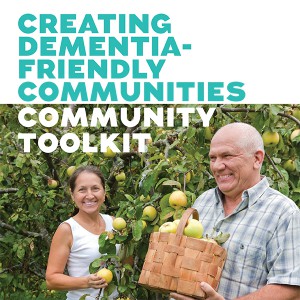 Alzheimer’s Australia has launched toolkits to assist communities and business become more ‘dementia-friendly.’ These new resources are behind the charity’s effort to support the push towards ending dementia stigma as part of Dementia Awareness Month in September. The initiative comes as new figures prepared by the charity indicate that dementia rates will more than double in NSW in the next 35 years.
Alzheimer’s Australia has launched toolkits to assist communities and business become more ‘dementia-friendly.’ These new resources are behind the charity’s effort to support the push towards ending dementia stigma as part of Dementia Awareness Month in September. The initiative comes as new figures prepared by the charity indicate that dementia rates will more than double in NSW in the next 35 years.
The community toolbox and business toolkit are free and contain brochures, language guidelines, information for front line staff, checklists and action plan templates. A new booklet – First Steps to a Dementia-Friendly Australia, gives examples of what dementia means in practice and illustrates how small actions can go a long way to making a difference to the daily lives of those with dementia. Alzheimer’s Australia has also produced a four-minute video featuring three people with dementia who share their experiences about the disability.
According to Alzheimer’s Australia, a dementia-aware community is one that assists those with dementia to live a high quality of life with ‘meaning, purpose and value.’ Examples of how business can contribute to this may include:
- Provide accessible services to people with dementia including having staff who understand dementia and know how to communicate effectively with people who have dementia
- Employers who provide support for people living with the disabilities of dementia to continue with paid employment.
- Volunteering opportunities for people with dementia.
For information and to obtain toolkits go to: www.fightdementia.org.au
The latest dementia prevalence rates show that Western Sydney and NSW coastal regions will be areas most heavily impacted by dementia growth rates. Figures prepared by Alzheimer’s Australia NSW by Deloitte Access Economics predict that the number of people in NSW with dementia will increase from an estimated 109,000 in 2014 to 272,000 by 2050.
Without new treatments or interventions more than one in eight Australians alive today are likely to develop dementia between now and 2050, said Professor Henry Brodaty, co-director of the Centre for Healthy Brain Ageing. He added that most Australians are likely to be affected “if not by developing dementia themselves, then by caring for a family member or close friend.”
More than 332,000 people have dementia in Australia and this is expected to treble by 2050.
For more information visit: www.dementiafriendly.org.au
